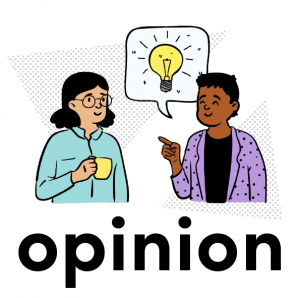PRO: Denying care to the careless
January 26, 2021
With resources rapidly depleting in the face of escalating coronavirus cases, rationing care has begun to seem like one of only viable options left for healthcare workers. Though it’s already being implemented in several states, ethical and moral concerns regarding healthcare allocation remain a sensitive topic for many.
Among these controversial discussions is the suggestion that hospitals refuse to offer care to those who do not abide by the precautionary measures set by their community. In an effort to maximize the well-being of the overall population of patients, material and staff shortages have increased drastically; in these situations, it is only justified that those who follow precautionary measures receive treatment before those who have contracted the disease as a result of their own recklessness.
When examining the nation’s guidelines for rationing care, one of the most widely referenced templates is the Crisis Triage Protocol. Introduced in early 2013, the system is activated in cases of public emergency, such as in pandemics or natural disasters, and focuses on saving as many lives as possible. Through this protocol, medical staff are tasked with prioritizing emergency treatment, usually according to criteria based on survival chances and life expectancy. However, by using such a system, doctors neglect to address the myriad of variables that are at play in every individual’s case beyond their current medical status.
Just trailing holiday gatherings as the leading cause of COVID-19 infections, workplace transmissions account for one third of all cases. In a time where many are financially unstable or simply unable to take a leave, health and safety is frequently sacrificed in an effort to support one’s family or finances. Some are unfortunately infected on their trip to the grocery store, despite taking extensive precautions. Others in nursing homes and secluded facilities are unknowingly exposed through sick caretakers. All of these individuals are infected while performing daily, necessary actions and taking the recommended precautions in doing so.
Meanwhile, there are masses who refuse to wear masks, as well as defy orders to quarantine, and instead selfishly attend parties and unnecessary social gatherings. On social media, there even exist groups who claim that the coronavirus is a hoax. In instances such as these, age and survival rates shouldn’t be the only factor in deciding which patients should receive treatment first.
Many perceive ration as an unprecedented measure, but budgeting medical resources is no novel concept. Though rationing healthcare is not an ideal scenario, it is crucial to realize that it’s inevitable, and that statistics should not be the only determining factor in whether an individual receives care. As doctors and nurses alike forgo their own health in the effort to save the endless stream of patients, it is only rational that those who disregard the safety of others be denied care when choosing between them and another who worked to protect their own livelihood; the lack of care is merely a consequence of their actions.
With an end nowhere in sight, demand for medical service will only continue to exceed the supply; it is pivotal for Americans to begin to unite and cooperate in a single effort to stop the virus that has destroyed so many lives.



